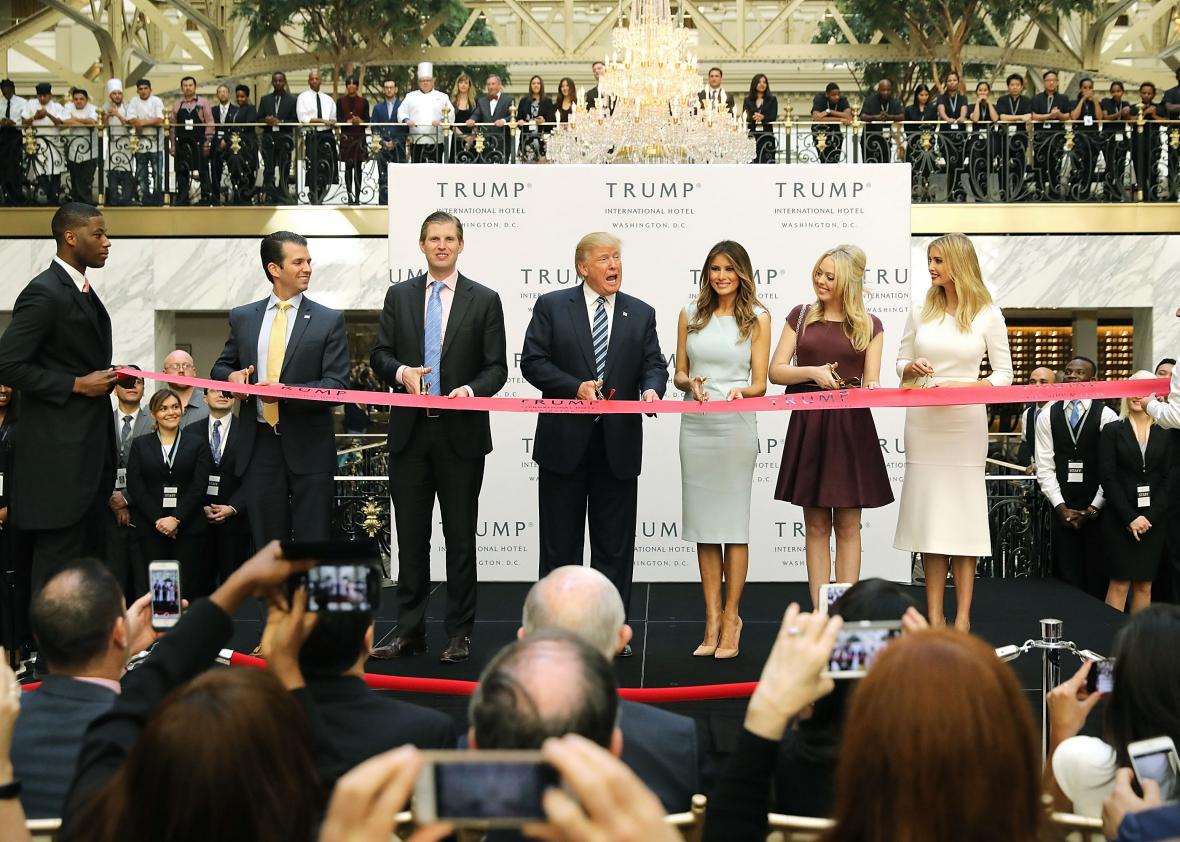President-elect Donald Trump announced in series of predawn tweets on Wednesday that he will be “leaving his great business” to focus on the presidency.
The news was delivered with all the strange Trumpian qualifiers we have come to expect: The reminder that his business was “great,” the back-patting caveat that he was “not mandated to do this under the law,” the belief that the president’s job was “running the country.” “Legal documents are being crafted which take me completely out of business operations,” Trump concluded. “The Presidency is a far more important task!”
Trump did not say Wednesday if he still planned to relinquish all ownership stakes and management roles, or if he would leave those stakes and responsibilities to his children, as he had said earlier. A formal announcement would come in a joint press conference on Dec. 15, he said.
In an interview with the New York Times last week, Trump had expressed some reluctance to remove himself from an ownership and management position at the Trump Organization and his other companies, noting rightly that the law was on his side and the president could not legally have a conflict of interest. The Trump Organization announced earlier this month that Donald Trump Jr., Eric Trump, and Ivanka Trump would run the company during their father’s term.
The move Trump hinted, was motivated not by the concern that his investments in foreign countries and legal cases in the United States might influence his conduct as president, but by optics. “I feel it is visually important, as President, to in no way have a conflict of interest with my various businesses,” Trump said.
It’s a visual concession and possibly little else. Leaving his ownership stake to his children will hardly distance the president from his business interests, and would not satisfy the conflict of interest laws that govern the conduct of other elected officials. (Senators, for example, are forbidden from introducing or passing legislation that would further an immediate family member’s financial interest.)
Foreign governments will still take heed of the leverage that surrounds any dealings with Trump-brand properties and their co-investors; lobbyists and business leaders will know what credit accrues to playing on a Trump course or staying at a Trump hotel. This will be especially true if the Trump children continue to play their outsize roles in diplomatic meetings.
And, finally, the president himself will never be “blind” to his own interests. After all, they consist mostly of fixed assets stamped with his name.
